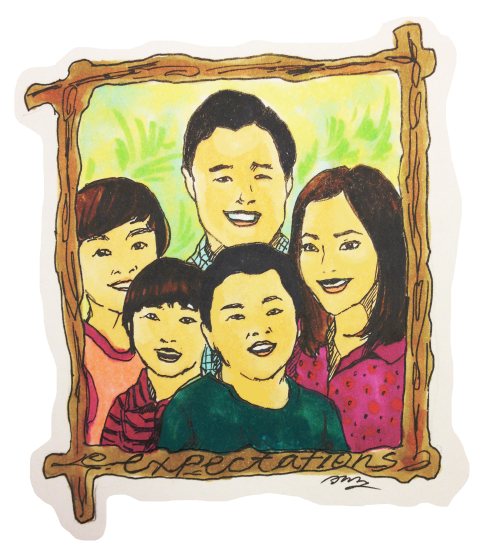A year in, Fresh Off the Boat (FOTB) is still much of the same: An occasionally poignant portrayal of the immigrant experience tempered by whitewashed sinophilia. Take last week’s episode for example. Right before Chinese New Year, FOTB aired the first depiction of Mandarin Chinese New Year on American primetime TV. For mainland Mandarin viewers, hearing xin nian kuai le instead of Cantonese (and slightly colonial) gung hey fat choy strikes indelibly sensitive notes—a reminder that Mandarin speakers do exist in the media. Yet for all the sentiment a phrase like this stirs, matriarch Jessica Huang’s (Constance Wu) instructive explanations of Chinese New Year makes it anticlimactic. She says that the Chinese abstain from post-New Year haircuts for fear of “getting rid of any good luck [they] just received.” The translation of traditional Chinese practices into a feigned Taiwanese accent comes off as parodic and cheap fortune cookie advice. Yet, problems like these contribute to the show’s ultimate importance in the discourse on race: The question of respectability.
There is nothing exceptional about the content of FOTB for a Chinese American. The show instead thrives on factual portrayals of Chinese life. But, factual isn’t necessarily sincere, or earnest. In this distinction, FOTB elicits a contrast between an acknowledged Chinese-ness and unmitigated Chinese-ness. In the first season’s finale, Eddie (Hudson Yang), the main character, showed a moment of Chinese patriotism when another student mocked China. Yet, Eddie never appears on screen trying to better acquaint himself with what it means to be Chinese. Instead, he actively runs away from it, worshipping Shaq or lusting over his neighbour’s mother. And while it’s unfair to expect an eleven-year old to pore over Zhu Xi or Lu Xun, it is reasonable to ask viewers what Chinese-ness really is.
The show does, however, boast an extensive list of accurate Chinese portrayals to the point where Vulture’s recaps have an “Authenticity Index.” Several watershed instances stick out: Grandma Huang (Lucille Soong) is the only exclusively-mandarin speaker on American television; Jessica tells a Jin dynasty ghost story; the Huang family eats zongzi (Chinese tamales). Though FOTB explicitly shows that Chinese Americans have a culture distinct from America, it simply lists these disconnected images. These scenes and allusions are itemized. They’re glimpses of Chinese culture, but so drowned out by school dances or Christmas that they feel as if the show has them to remind people that the Huangs are, in fact, Chinese.
Here, FOTB’s shortcomings challenge viewers to reconsider their own creation of identity. Is it okay to expect someone different to be the same? How can “same” and “different” be reconciled? With trope characterization, FOTB ultimately fails to answer these questions. Eddie is a young Chinese-American who objectifies a white girl and listens to gangster rap. His brown-nosing brothers kiss up to teachers and parents. His mother is a first generation immigrant who has the bite of a Chinese matriarch, but lacks insight on the actual issue of culture, resorting to the cryptic “Because I said so” to scare her boys. His father Louis (Randall Park) strives to become a fun-loving American steakhouse owner. They do look different and sound different, but they’re the same archetypes seen on all sitcoms.
No one expects FOTB to provide critical revelations on race and identity. But hopefully, the show is the first step towards new media representations of East Asians on television. As a family-friendly show aimed at middle America, FOTB does raise questions, intentional or not, regarding the identity and respectability of Asian-American identity crafting. The lack of foundation in Chinese culture, the white Chinese-ness of the characters, the willful and giddy assimilation, mix and ask the viewer where exactly non-white characters and people fit.
Were FOTB a more complex and well-written show that critically examined and deconstructed the concept of otherness, it would be hollow—it wouldn’t as much start a debate as read like a textbook. As it stands, FOTB’s faults lead to a reappraisal of the culture it intends to portray. And when viewers question its representation of culture, the show achieves its purpose.








